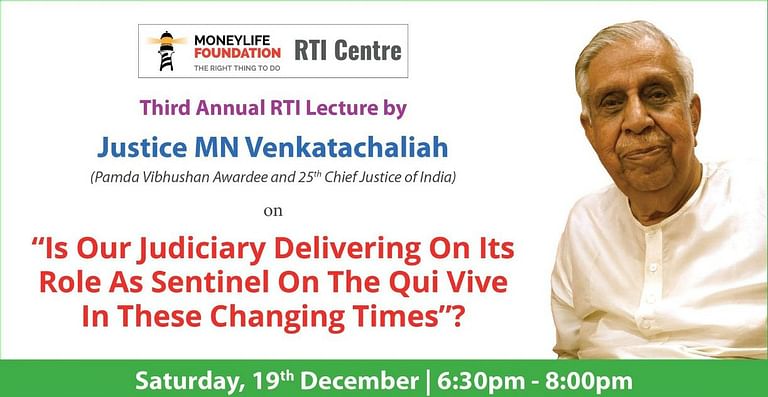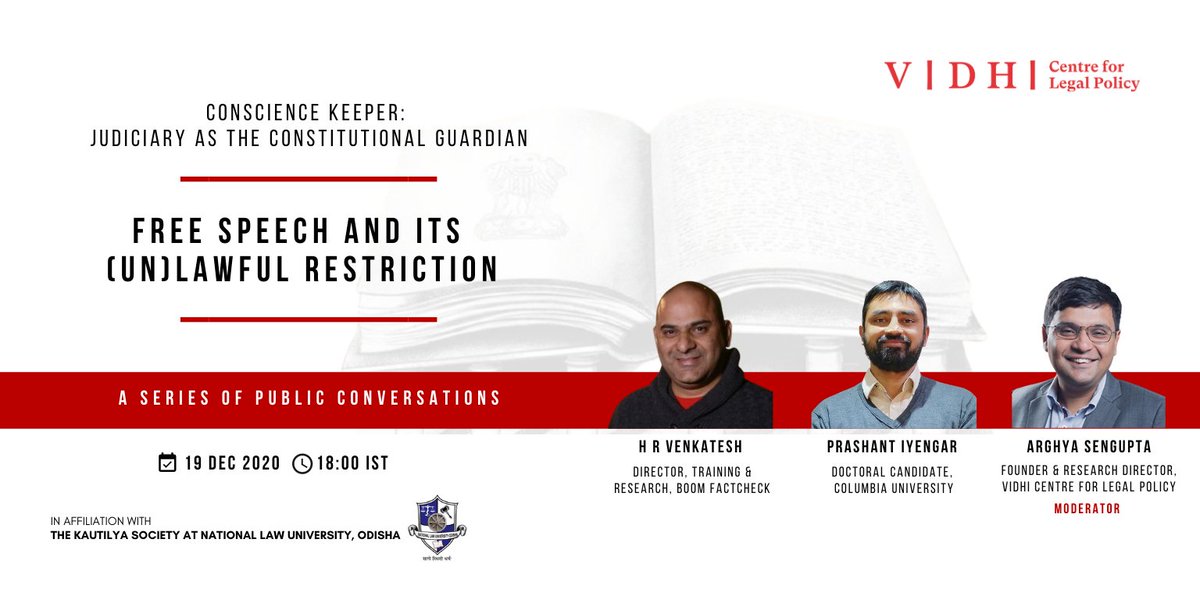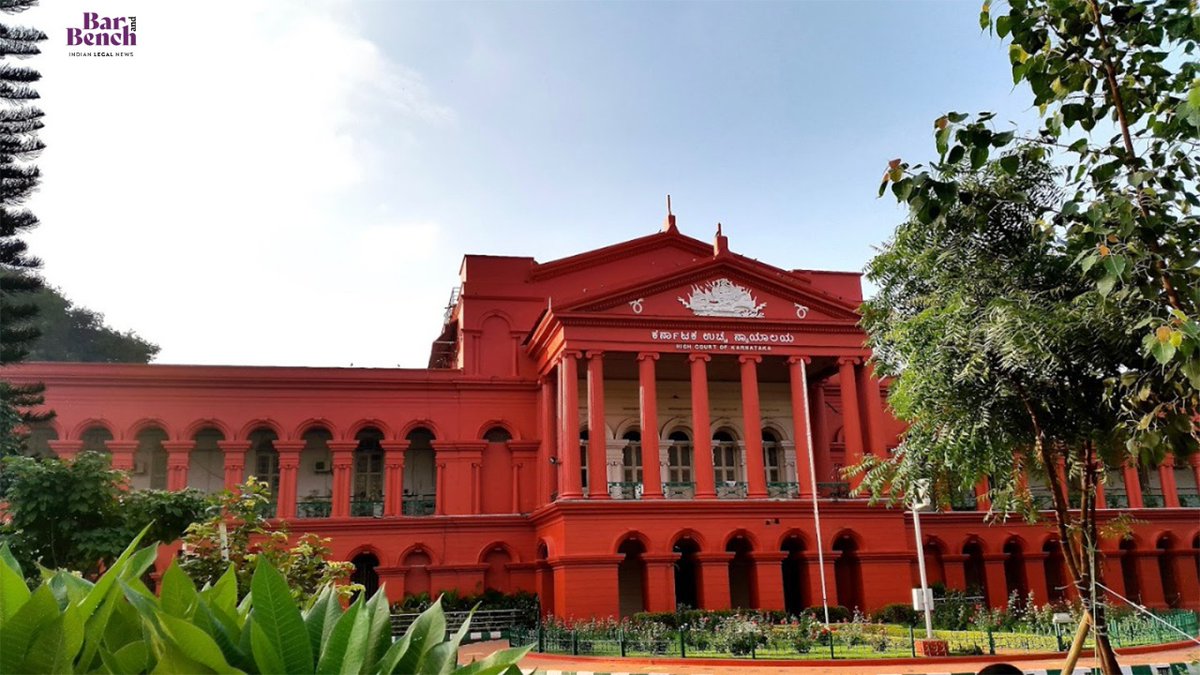
Retired Supreme Court Judge, Justice Kurian Joseph to shortly begin speaking on the "Significance of Constitutional Values in the 21st Century" in a virtual discussion hosted by LEX MACULA. 

The event is being live-streamed on YouTube here:
Justice Kurian Joseph begins his address: Our Constitution is a unique one... It's a Constitution of, by, for the people because it is a country that exists for the people. It does not owe to anybody else - only the people. 

Justice Joseph says it is akin to a building that is constructed on five pillars i.e. sovereign, socialist, secular, democratic, republic.
Justice Joseph speaks on "democracy" :
People elect their own government and the government rules the country for the people - not for anything else. The moment the government does not rule for the people, you pull them down. Because the government should be for the people.
People elect their own government and the government rules the country for the people - not for anything else. The moment the government does not rule for the people, you pull them down. Because the government should be for the people.
Justice Joseph on the saying that "you get the government you deserve":
It is you who elects a person to the Parliament, it is your voice he represents.
It is you who elects a person to the Parliament, it is your voice he represents.
Justice Joseph adds that philosophically or practically this means that everyone in this country has a space. If you have space in the country, it becomes your country.
Justice Joseph: Citizenship gives you a space. And this space does not depend on how much money you have, or gender, or caste or what food you eat or dress you wear etc. You have a great status in this country. You have a right to say you have a space.
Justice Joseph: Nobody can deny me that space (of a citizen), one cannot uproot me... Even if I commit a crime, I would be jailed in this country only ...
Justice Joseph: Every citizen has a voice. The moment you are denied your voice, you don't live in a democratic country and you don't get assured of your democratic rights.
Justice Joseph says that democracy is not a system of governance alone, it is a system of living, where everyone has a space in the country and where "everyone who has a space in the country as a citizen has a voice to raise."
Justice Joseph adds the moment you are silenced, or not allowed to speak, democracy is gone.
Justice Joseph says that secularism, like the other pillars, is part of the basic structure of the Constitution.
Justice Joseph: If something is built on five pillars, you cannot remove one pillar. It loses its support ... It cannot be removed or tinkered with.
Justice Joseph: If something is built on five pillars, you cannot remove one pillar. It loses its support ... It cannot be removed or tinkered with.
Justice Joseph refers to the numerous amendments made to the Constitution of India. He notes that they were tested on the Basic Structure.
Justice Joseph observes that even Constitutional amendments brought even with an absolute majority cannot take away the basic structure.
"It is beyond the amending power of the parliament."
"It is beyond the amending power of the parliament."
This (Basic Structure Doctrine) has been settled by a Constitution Bench of the Supreme Court in Keshavanadha Bharathi's case, Justice Joseph recounts.
He explains that Constitution Benches decide on significant questions involving the interpretation of the Constitution.
He explains that Constitution Benches decide on significant questions involving the interpretation of the Constitution.
Independence of the Judiciary, secularism, democracy - all have been held to be part of the Basic Structure, Justice Joseph adds.
Justice Joseph: Secularism is part of the Basic Structure of the country, not simply of the Constitution.
Justice Joseph: Secularism does not mean that India does not have an official religion unlike its neighbour Pakistan where there is an official religion (Islam)... here (in India), the country belongs to the people, not to any divine source...
Justice Joseph: ... but this country does not deny the existence of divine powers. That is the beauty of Indian secularism.
Justice Joseph: It does not belong to any particular religion or owe allegiance to a particular religion, but it respects and it protects and promotes religious freedom and the right of the people to believe in a religion of their choice.
Justice Joseph: It is neither owing allegiance to a particular religion nor it denies the role religion can play in making a person a better person and moulding her as a better citizen. This is the role of religion, the country has recognised it.
Justice Joseph: Secularism of India is a right of the people to believe in religion or not to believe in a religion. That's why Article 25 of the Constitution speaks of freedom of religion and "freedom of conscience."
Justice Joseph: Now there is a lot of discussion on every State competing to legislate on #LoveJihad laws, restricting the freedom of religion etc. That's on conversion.
Justice Joseph: Religion is a matter of faith and a of your conscience. Nobody can allure you or threaten you. If so, it is certainly not an exercise of free will. This country respects your free will so no one can either forcefully convert you or appease you for conversion
Both are wrong, Justice Joseph adds (referring to forced religious conversion or conversion for appeasement)
Justice Joseph: But no one can prevent you from getting converted. Today I am a Christian. If today I feel I want to become a Hindu, nobody can prevent me. Tomorrow, if I want to become Muslim, no one can prevent it. Day after, if I want to become a Parsi, no one can prevent it.
Justice Joseph: Dr Ambedkar converted to Buddhist, though born and brought up in the Hindu religion.
Justice Joseph: Conversion by force or duress or by allurement is wrong. It should be left to the individual to make a free choice out of his free will.
Justice Joseph: A fear psychosis as such is introduced in this country that if you change your religion, you would be either finished or cease to be having a position in society. That is certainly wrong, undemocratic and unconstitutional.
Justice Joseph: You have the right to choose any religion of your choice... our country is not of any (one) religion. More than 70% of people believe in the Hindu religion, still India does not have an official religion.
Justice Joseph: India does not belong to a Hindu religion. Officially we are not attached to a religion. Constitutionally, we are open to all religions. That is the beauty of it.
Justice, liberty, equality (rights) and fraternity (a duty) are the four sub-pillars of the Constitution of India, Justice Joseph says.
Liberty has five sub-pillars, Justice Joseph says - thought, expression, faith, belief and worship.
Justice Joseph refers to Article 21: Liberty is so closely linked to the right to life. The whole reflection of your existence is liberty. There is no life without liberty, there is no liberty without life.
Justice Joseph is speaking in a virtual discussion hosted by @LexMacula
Justice Joseph is speaking in a virtual discussion hosted by @LexMacula
Justice Joseph, referring to "life" and "liberty" under Article 21:
They are sides of the same coin. It is available to all persons, not only citizens
They are sides of the same coin. It is available to all persons, not only citizens
Justice Joseph says that all persons are entitled to "dignity", regardless of religion, gender, language, wealth, political affiliation, location, caste, community etc.
Transgender persons are entitled to the same rights as any other person, man or woman. They are also persons, citizens, they cannot be discriminated against: Justice Joseph underscores.
Justice Joseph speaks on how gender equality, upholding of the dignity of women would only come with a change in the mindset of the people.
The dignity of a woman and gender equality - that is something that has to go to the mindset of the general public of this country. No execution or capital punishment will give you this message: Justice Joseph
Had it been so, after #Nirbhaya's case, India should have been a very safe place for women to walk on the streets, alone or in company, day or night: Justice Joseph
Justice Joseph speaks of how women are still being viewed as "commodities for consumption."
Men, owing to economic, social, political, communal factors, subjugate and subdue the dignity of women. This mindset has to change: Justice Joseph.
Men, owing to economic, social, political, communal factors, subjugate and subdue the dignity of women. This mindset has to change: Justice Joseph.
Justice Joseph: Your right to live in this country should not depend on whether you are a man or a woman or a transgender person, whether beautiful or ugly, whether poorly clad or robustly dressed, rich or not, religion, political affiliation etc.
Justice Joseph: A counter-culture is supremely important for a democratic country. When the counter-culture is suppressed, it is not a democratic country.
Justice Joseph says that constant vigilance by citizens is required to ensure that democracy does not fade away or assume a different form.
When you see undemocratic, unjust, discriminatory, suppressive, oppressive tendencies and voices around you - raise your voice, stand up and speak out. Become a responsible citizen. The dignity of your brothers and sisters are in your hands: Justice Joseph
Justice Joseph answers Qn on ideal judicial conduct. He says what is important is that a Judge bears "true faith and allegiance to the Constitution"
This means your allegiance shall not be coloured by political, communal, philosophical bias, or bias of arbitrariness: he adds.
This means your allegiance shall not be coloured by political, communal, philosophical bias, or bias of arbitrariness: he adds.
On the "bias of arbitrariness", Justice Joseph explains that it is an attitude where the Judge assumes he knows everything.
Judges cannot claim the monopoly of knowledge. A judge is always taught by lawyers - but it should be taught in the right way, that is all: Justice Joseph
Judges cannot claim the monopoly of knowledge. A judge is always taught by lawyers - but it should be taught in the right way, that is all: Justice Joseph
Justice Joseph: One failure of democracy in the country as of now is on the part of the trends I see in the community of advocates here. Where is their voice now?
Justice Joseph: When things go Constitutionally wrong, it has always been the advocates who have been raising their voice. Where are they now? They are also divided politically, communally, in protecting their own self-interest.
Justice Joseph: The moment you don't have a unified Bar, in terms of the independence of the Constitutional functioning of the Court, things will go wrong. Things are likely to go wrong, things are going wrong.
Justice Joseph adds - referring to the Bar as "watchdogs" - that things go wrong because "there is no Bar which barks when things go wrong."
Justice Joseph: Unfortunately, the watchdogs of this country - Advocates in the Judicial system - are not barking the right way and they are not able to bite.
Justice Joseph: They will bite or bark looking at the person - if the thief belongs to their religion, they will not bark, if the thief belongs to their political party or caste, they will not bark. The fact that there is a thief is compromised for biases.
Justice Joseph: A duty of a lawyer is to think beyond all those things (religion, politics etc.). Unfortunately, across the country, the Bar is losing its moral power and its power as a real watchdog.
Justice Joseph: I have never seen the Supreme Court of Inda Bar so politically and communally divided. And that is the situation in several High Courts across the country also.
Justice Joseph adds that an objective approach to the Constitution is being lost. It is a subject approach now, he says.
Fundamental duties came when democratic rights were denied: Justice Joseph says, answering another question.
Justice Joseph: Casteism, communalism, corruption and the threat to the independence of the judiciary, from within and outside, these are the four dangers I see in the 21st century.
Justice Joseph says that the threats to the independence of the judiciary are from within the judiciary as well.
"... it is from within also, unfortunately, I plead, it is from within also", he remarks.
"... it is from within also, unfortunately, I plead, it is from within also", he remarks.
Justice Joseph: If we have an independent judiciary, nothing can touch this country, because this country has always withstood onslaughts only because of an independent judiciary.
Justice Joseph says that the moment the judiciary's independence is compromised, or there is a perception it is likely to be or it is already compromised, or there are signs of such compromise - we lose our confidence.
That confidence of Constitutional institutions has been shaken...Why should I blame judiciary alone? Look at any Constitutional institution, has its credibility not been shaken? : Justice Joseph
Election Commission, CAG, UPSC, all regulators - MCI, BCI, UGC, Statistical commission, which we thought would not think about it, RBI - take any sector, I am asking you to make an introspection. Has its credibility not been shaken?: Justice Joseph
This is a very dangerous thing. The credibility of a Constitutional institution like the judiciary or election commission or CAG and institutions of Constitutional significance and importance shall not depend on the colour/strength/political power of the government: Joseph J.
It shall depend only on the Constitutional integrity and nothing else: Justice Joseph adds.
Is there any investigating agency whose credibility has not been shaken or attacked on its independence?: Justice Joseph
We used to speak so proudly of investigating agencies: Justice Joseph adds
Let's think of an India where your ideology, wealth, ideology, power, politics, gender, religion, language, colour etc. does not matter: Justice Kurian Joseph says as part of his final remarks, following another question.
At least lawyers - it is the law that is important to us, not any other emotion. Let us be governed by law: Justice Joseph
Wherever things go wrong, say you are wrong. Whenever I commit a mistake, it does not depend on whether somebody else sees or not. Live a law-abiding life. Never take pride in breaking the law. Help people to follow the law. Assist those who stand up for others: Justice Joseph
Be a human being first: Justice Joseph says as he ends his address.
The event concludes after the vote of thanks.
@LexMacula
The event concludes after the vote of thanks.
@LexMacula
• • •
Missing some Tweet in this thread? You can try to
force a refresh










